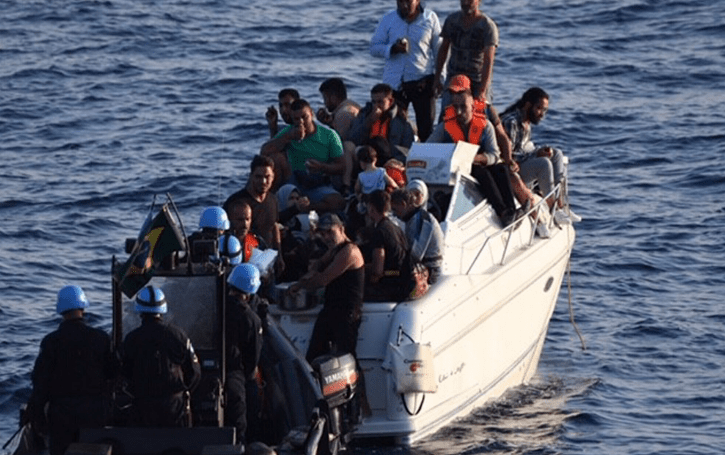
Lebanon has retrieved the bodies of four people including a child after they tried to flee the crisis-hit country by sea on an overloaded dinghy, the civil defence said Monday.
A week ago, UN peacekeepers retrieved one body and rescued 36 people from a boat in trouble in international waters off the Lebanese coast.
Families of the survivors said the boat had been adrift without food or water for around a week, during which time several passengers had died or jumped overboard to find help.
The bodies are presumed to be from the same ill-fated crossing.
Since Friday, “we have retrieved four bodies — belonging to two Lebanese, one of whom was a child, a young Indian man and a Syrian man,” Samir Yazbek, the head of the civil defence’s sea rescue unit, told AFP.
The bodies were found in four separate locations off the north and south coasts of the country, and the search was ongoing, he added.
The UN refugee agency said last week that 25 Syrians, eight Lebanese and three people of other nationalities had been rescued from the boat.
It is unclear how many men, women and children originally clambered aboard the dinghy, and therefore how many are still missing.
On Saturday, the navy said it would step up its searches within and outside Lebanon’s territorial waters to find any other victims.
Relatives of those who went missing from the impoverished north Lebanese city of Tripoli say the people smuggler involved in the crossing has dropped off the radar since the tragedy.
They have filed three legal complaints against the man, who they say is a well-known figure in the community.
A military source on Saturday said a person acting as an intermediary between passengers and the boat owner had been arrested.
In recent weeks, dozens of Lebanese and Syrians have tried to make the perilous sea journey from Lebanon to the Mediterranean island of Cyprus, authorities on both sides say.
The Republic of Cyprus, a European Union member, lies just 160 kilometres (100 miles) away.
Lebanon is in the throes of its worst economic crisis in decades, compounded since February by the novel coronavirus pandemic.
It is also reeling from a monster blast at Beirut’s port last month that killed more than 190 people, ravaged large parts of the capital and reignited public anger against the political class.
Source: AFP
